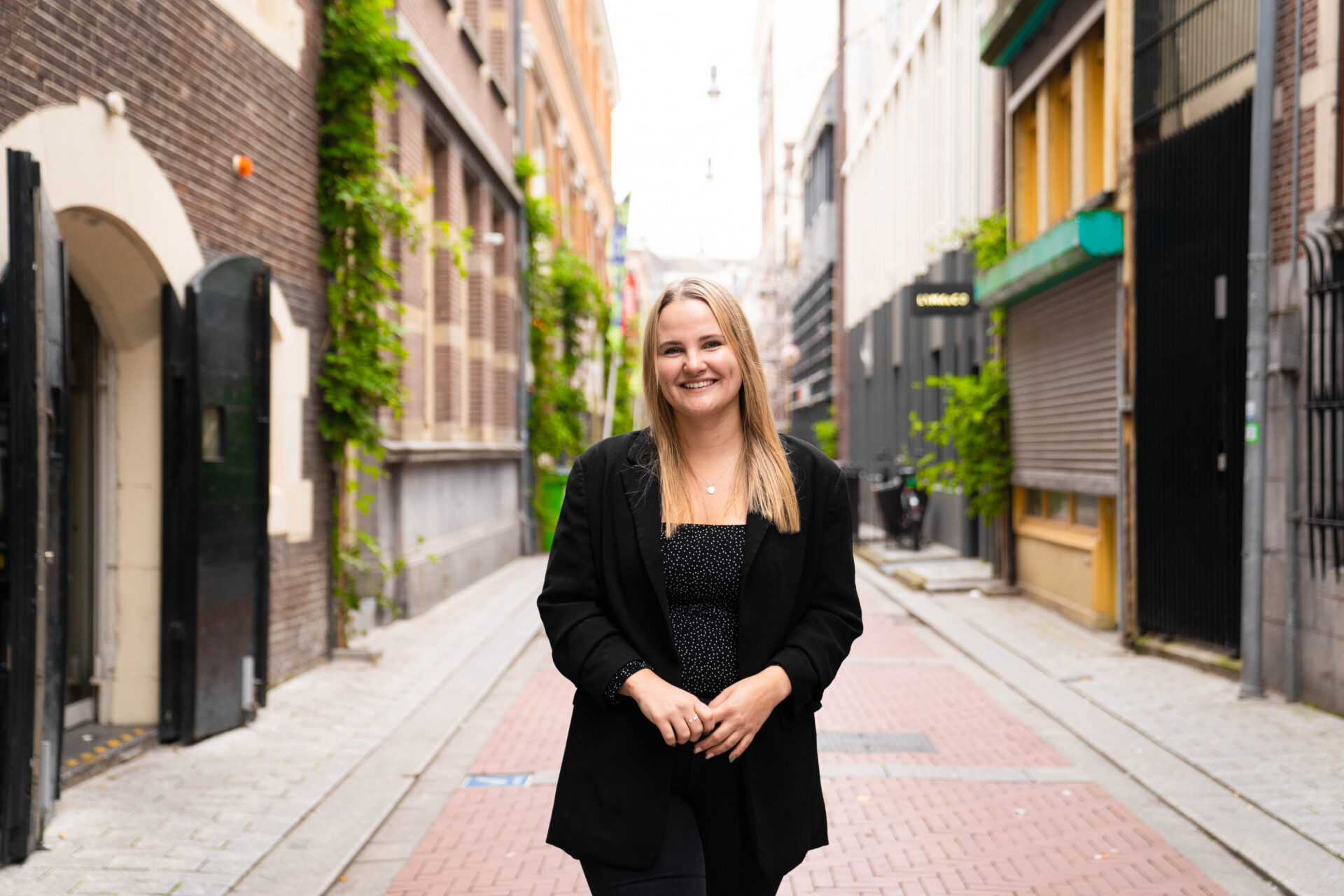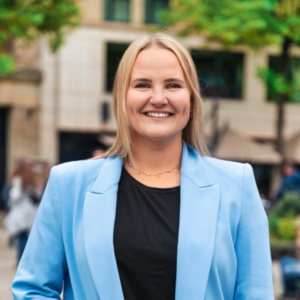Aline about the German sales market
December 5, 2022 - Maurits Hofstee


At Sqales, we work with a variety of sales professionals. The majority of our team consists of driven Sales Development Representatives (SDRs). Aline is one of our new SDR’s and focuses on the German market. In this interview, she tells more about who she is and what the difference is between the Dutch and German markets.
Who are you?
”I was born in a village near Munich and grew up there. I lived there until I was 20. After that I started studying Tourism Management in Kempten. During my studies, I did an internship at an international sales company which sparked my interest in the sales field.
Early this year, I moved to the Netherlands to build a new life here. I learnt the Dutch language in a short time and can now proudly say I speak it fluently. Writing is still difficult sometimes, but fortunately everyone can understand me. Last but not least, I started as an SDR at Sqales last summer. I am responsible for approaching the German market.”
What do you do?
”As an SDR, I am responsible for making the first contact with a potential customer. I take care of the first steps in the sales process. For my international clients, I generate qualified leads in a B2B environment. I then contact these via phone, e-mail, LinkedIn or other channels. After this, I consider the best approach for the lead in question.
In other words, the work of a SDR consists of research, acquisition, negotiation and creativity. My goal is to arrange initial meetings with interested parties for my clients, in order to present innovative IT solutions.”
What is the German market like?
‘’At Sqales, I am solely responsible for the German market. Of course, this is not entirely unexpected as I am originally German which works to my advantage. The interesting thing is that the German market requires a different approach than the Dutch one.
For example, the German market requires a more formal approach. For instance, you are only allowed to say ‘du’ when a partnership is completed. In the Netherlands, people are a lot more nonchalant and we address each other much more often with ‘je’ and ‘jij’.
There is also often a strong hierarchy within German companies. The process of signing a contract, for example, will most likely take longer than the same process in the Netherlands. This is because several decision-makers are involved and people from different departments have to give their approval. In Dutch companies, this is more often a ‘flat hierarchy’. Here, you often have 1 or 2 contact persons, allowing you to switch faster with each other.
Furthermore, German people are often more reserved when entering into conversations. So it works to your advantage if you speak the language. You build a bond faster and earn trust, which makes the sales process more accessible. In contrast, the Dutch market has more of an international focus, and has a more open attitude towards making sales with English-speaking customers.
Finally, Germans also tend to be very ‘straight to the point’. The Dutch are often more into smalltalk before starting the conversation in earnest.
All in all, it is very important to get to know the small differences between the German and Dutch markets and use this knowledge to your advantage.”
Disclaimer: Of course, this does not apply in all cases.
What are your goals?
”My main goal is to keep developing myself in different areas. This includes things like dealing with rejections or integrating creativity into the sales cycle.
Qualities like self-awareness and self-reflection are very important for solving problems and achieving success. This is something I value highly. Every day I learn more and therefore I am grateful to have the opportunity to develop myself at Sqales.”

